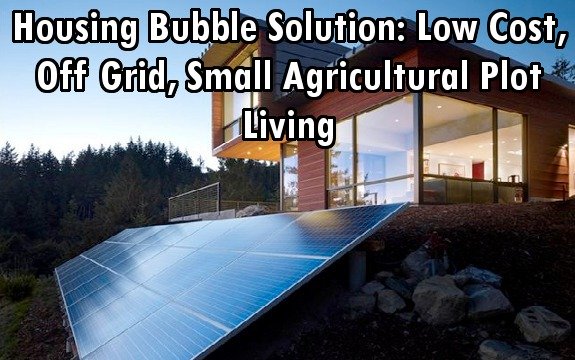Housing Bubble Solution: Low Cost, Off Grid, Small Agricultural Plot Living

 The US is still facing a housing crisis, but so are other nations, including Great Britain. While we continue to recover from the sub prime mortgage lending crisis created by the greed of central banks, people everywhere are looking for industrious ways to live without a mortgage at all, or at least afford housing in a more sustainable vein. A new community being created in Somerset might be the seed for multiple off-grid, low-cost, rural homesteads across multiple countries.
The US is still facing a housing crisis, but so are other nations, including Great Britain. While we continue to recover from the sub prime mortgage lending crisis created by the greed of central banks, people everywhere are looking for industrious ways to live without a mortgage at all, or at least afford housing in a more sustainable vein. A new community being created in Somerset might be the seed for multiple off-grid, low-cost, rural homesteads across multiple countries.
Just 5 miles from a 12th century church, local residents of Barton St. David are planning a new housing paradigm. It is inexpensive, efficient, and sustainable.
With about a dozen current members and the search on for a handful more, these pioneers are applying for permission for 8 live-work units overlooking a field. If granted permission, the small community will work and live off the land.
They will attempt to ask permission first, instead of having to battle city council members or local authorities later on which have been notorious around the globe for running hard-working individuals off land, especially when they are trying to live an ‘off-grid’ lifestyle.
One Florida woman, for example, has gone head to head with a local judge who has declared her efforts to live off the grid illegal and in violation of local and international code ordinances. Apparently generating your own power and using rainwater or other natural elements is not your sovereign right.
Another example, you would think growing some carrots and broccoli in a finely manicured garden would be a boon to any neighborhood, but a Florida couple has had to challenge the state when they were told they would be fined $500 simply for having a vegetable garden on property they owned for over 20 years.
By using alternative forms of energy, such as solar photovoltaics or wind turbines, growing organic food, composting waste, raising free-range livestock, and sourcing water from underground wells or through water catchement, these communities can be close to or even 100% self-sustaining. While there are also usually trade offs with quality of living, considering how much electric power most average home-owners utilize, off-grid living is a viable option for individuals who currently have no home at all, and can scarcely afford one in the depressed economies around the globe.
